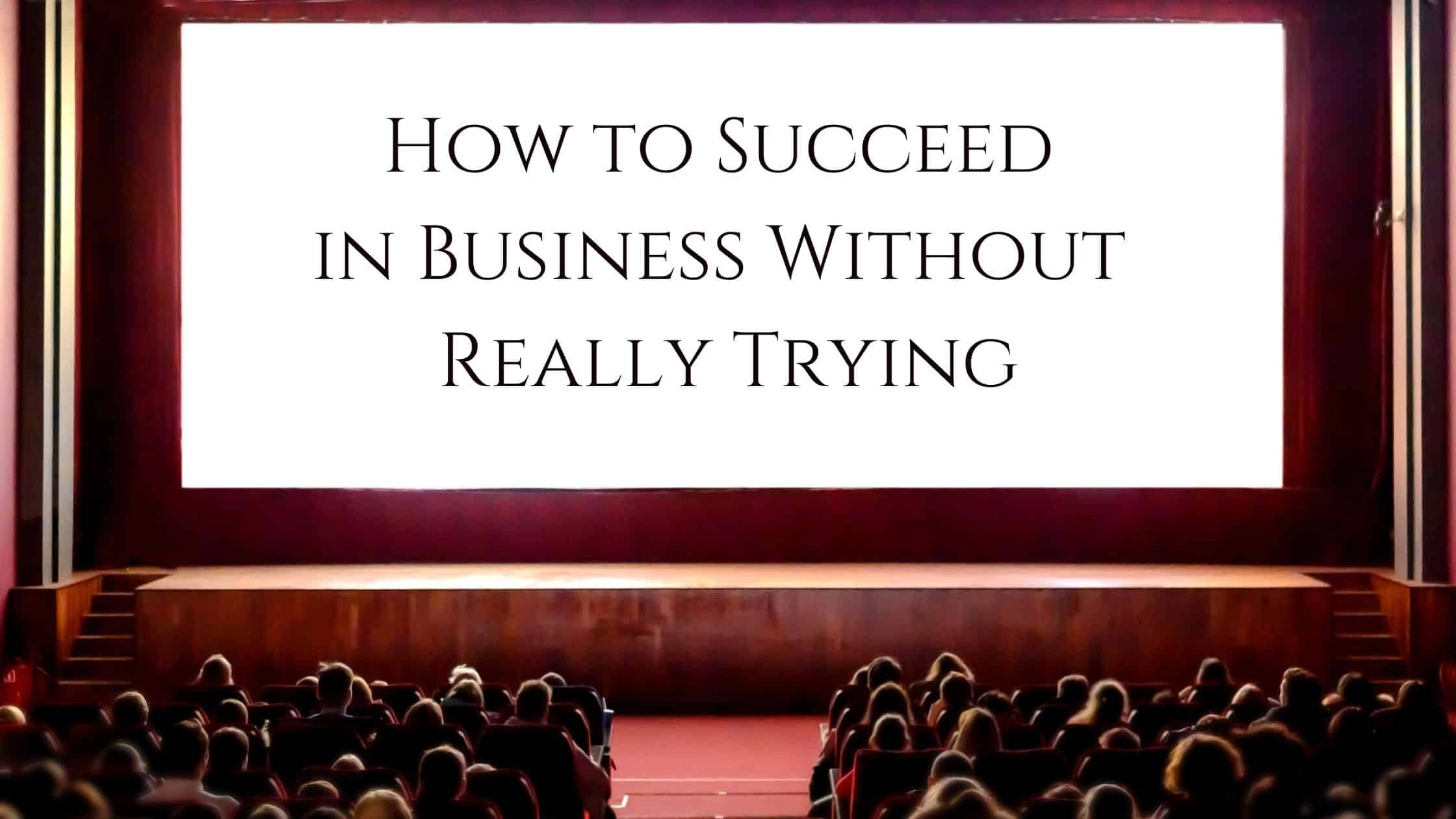How do you succeed in business without really trying? By giving the illusion of success without actually being successful. Grossly exaggerate your experience, accomplishments, and knowledge. Additionally, make yourself look good to others by preaching success metrics that don’t actually measure anything meaningful. Lights, camera, action, it’s time for success theater.
Success theater is celebrating success using vanity metrics. It is projecting optimism about your performance that doesn’t align with reality. Success theater is casting blame on unsuspecting colleagues by way of explaining any shortfalls or errors. It is a culture of confidence that is devoid of objectivity. Even more, it is selectively providing positive information while at the same time avoiding facts that refute your success story.
One such example of success theater includes Elizabeth Holmes, former CEO of Theranos. She exaggerated their technology to raise money from investors. Another example is Ken Lay of Enron, who left behind a legacy of shame, mismanagement, and dishonesty. Then there is Bernard Ebbers, ex-CEO of Worldcom. He pressured top executives and subordinates to inflate numbers to make the company look more profitable.
Non-work examples of success theater include living on excessive credit to give the illusion of being wealthy and the illusionary life that so many portray on social media. Success theater is going through the motions of demonstrating to everyone that what you are doing is working without inspecting that it really is working. You look like you are making progress, you sound like you are making progress, and no one is saying otherwise; therefore, you must be succeeding.
You can succeed in business without even trying by rehearsing your lines and setting the stage for success theater. However, mastering the art of success theater won’t build a lasting career. It doesn’t create the kind of legacy you want. Eventually, even the most successful theater productions come to an end.
Common Signs You’re in Full Production in Success Theater
A pervasive good news culture is a common cause of success theater. Bad news and challenges are frowned upon. When you try to express them, your boss shuts down. They stop listening, pick up their phone or start reading their email. It leaves you with no option but to become an actor in success theater.
Additionally, fear of being criticized and humiliated in a meeting when addressing issues encourages you to find creative ways to describe them. In doing so, you obscure the real issues, and so the success theater curtain rises. Even more, you notice people are vanishing after voicing concerns.
Further, no cost is too great to meet the numbers. In this theater, the villain triumphs. Profitability, customer satisfaction, employee engagement, and quality fall to the wayside to hit the target.
Finally, the only way to succeed and move up the ranks is by winning all the time. Positive Pollys and good news Garys are the examples you are held to indicate your organization has become a success theater.
How to Be the Antagonist in Your Company’s Success Theater
Invite people to voice concerns. Ask them to poke holes in your idea, suggestion, or projections. Ask for help to identify areas you need to pay more attention to. Furthermore, asking five whys usually pushes through the rose-colored glasses view so you can address the real issues. Finally, when people voice concerns, celebrate their courage and recognize them for bringing them forward.
Promote the comeback kid. Go above and beyond in celebrating people who have turned around their performance. Promote people who have demonstrated resilience through the twists and turns in their role. People who have never worked through problems or bad news fail in a big way when problems surface.
Don’t just plan for sunshine and rainbows because dark skies always come. Put more time into planning what might not happen and what you will do about it. What different scenarios could occur if the market changes, the customers change, or worse, the economy changes?
Success feels good, but it feels better when you aren’t acting. Success theater is risky for your business and your career. When you find yourself an actor in success theater, do what you can to shine a light on the stage. Embrace some imposter syndrome. Bring the drama and victories in focus. Otherwise, your progress and success will all be for show.
Last updated on September 29th, 2021 at 07:00 am


